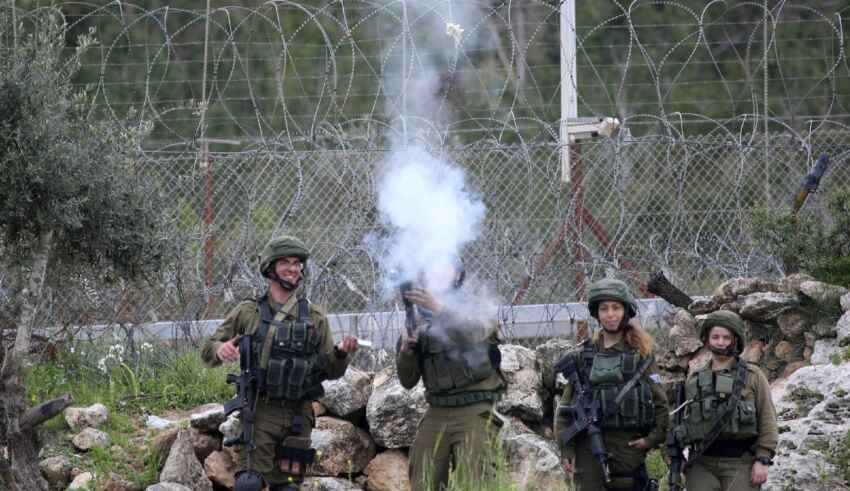
The effects of the escalation of violence between Israel and Palestine are likely to be felt in the whole region. With the possibility of wider conflicts looming, it is important to understand the context in which this war is taking place. Particularly, the role other actors had in the instability of the region and how they can now contribute to peace.
Since 2019 the MENA states have taken the approach of realist regional diplomacy whereby normalisation agreements were sought in an attempt to increase stability and pursue domestic economic needs. As a result, we have seen the normalisation of relations between Israel, Bahrain and the UAE through the Abraham Accords as well as the end of the Qatar blockade in 2021 and the restoration of Iranian-Saudi ties. Although the de-escalation of tensions has brought some welcomed stability, one fatal mistake was made: no long-term solution for the Palestinian issue was actively pursued whilst Iran was left to interfere.
Both MENA countries and Western countries seem to have bought into the idea that long-term stability could be achieved whilst the Palestinian cause was left unresolved and only “managed” on a day-to-day basis. Such a miscalculation was aggravated by Iran’s support of groups across the Middle East. Khomeini’s perception of Israel as a threat to regional influence and regime security led to Iran building what is referred to as the “Axis of Resistance”, which comprises different paramilitary groups united by their opposition to Israel and the US. The danger of such backing has become clear with the recent attacks by Hamas against Israel.
Since their takeover of the Gaza strip in 2007, Hamas has not presented any long-term strategy and arguably their approach has done nothing but diminishing the chances of any agreement with Israel. Given it is difficult to imagine a reprisal from Israel was not envisioned by Hamas, the strategic value of their recent attacks remains unclear. In light of the escalation they led to and their far-reaching effects, the choice of letting Iran’s destabilising influence simmer revealed itself as a grave mistake. A change in attitude is thus necessary for both peace between Israel and Palestine and stability in the region. The two are, in fact, intertwined. Without stability and cooperation between the MENA countries a long-term solution to the conflict is unlikely and without such solution the whole region risks instability.
The first desirable change would be to tackle the issue of third-party support to groups of a clear terroristic nature as a way of pursuing their own interests. Letting third parties support such groups in their quest to power has proven to lead exactly to the sort of escalation we are now witnessing. Ultimately, what was disguised as support to the Palestinian cause undermined peace talks and led to civilians paying the consequences. Israel’s responsibility in the atrocities that are, and have been, taking place remain undisputed. Notwithstanding this, the mistake of letting groups like Hamas take control in such fragile situations should be avoided at all costs in the future.
In order to do this, a cooperative and cohesive approach should be taken by relevant actors so as to avoid individual interests being pursued to the detriment of the whole region. The reactions to the immediate aftermath of the attacks already showed some growing regional divisions. Furthermore, many countries in the region have to face the pressure of public opinion urging them to take a strong stance against Israel. As legitimate as this position is, it is essential to strike a balance between condemning Israel’s attacks on Gaza and inciting an antisemitic sentiment which limits the space for dialogue. Nonetheless, there have also been some potentially encouraging signs of willingness to mediate, for example from Qatar and Turkey. It is argued that a more decisive and comprehensive approach is necessary to begin a long-term strategy of stability for Israel and Palestine that goes beyond a ceasefire and the “managing” stage.
Such a strategy should be conceived as integral part of a wider cooperation that encompasses and addresses different regional and global challenges, including the region’s relations with the US and Europe. Pivotal to achieving such cooperation is the need to at least partially overcome authoritarian and overly competitive security mindsets. Remaining realistic as to the extent to which this can be achieved in the current climate, it is argued that MENA countries should try to capitalise on the recent diplomatic efforts made. Without forgetting or underestimating the role that other big powers on the international plane have to play in building peace, MENA countries could and should lead on the creation of a feasible and durable peace strategy in the region.
The European Institute for International Law and International Relations















